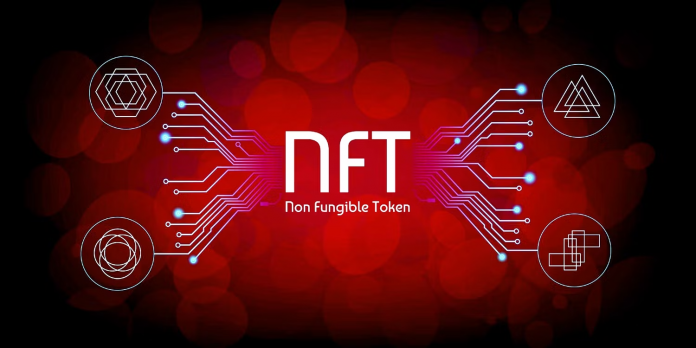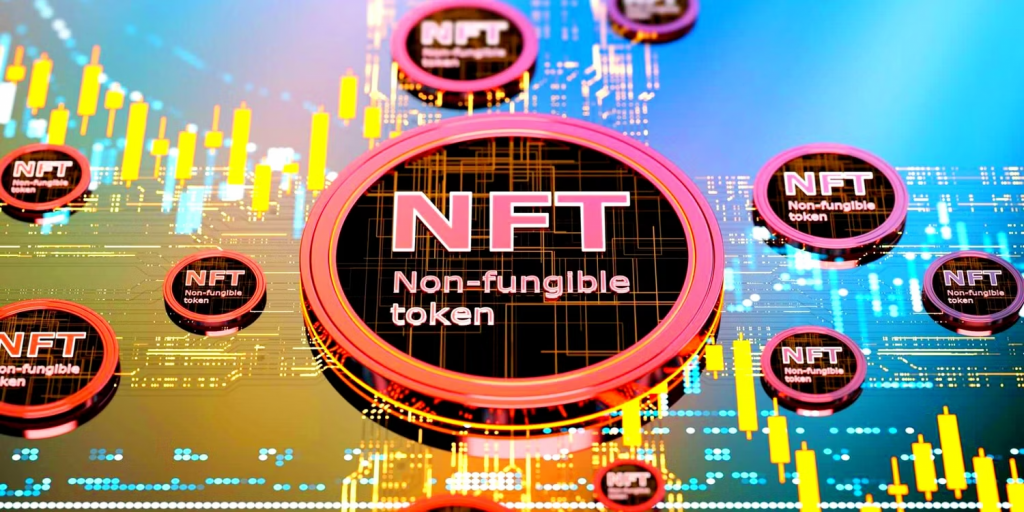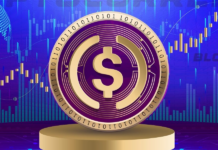
Owning fractions of an NFT is not the same as owning an NFT, though it can come with the same benefits (or lack thereof) as most cryptocurrencies. The NFT bubble of 2021-2022 saw the public become aware of NFTs, or “non-fungible tokens,” and as prices skyrocketed into the stratosphere, retail investors felt left out, which brought the market of fractional NFTs to the world.
Retail investors began to feel the FOMO (Fear Of Missing Out) in 2021 when the height of the crypto bull run and NFT bubble saw regular people become millionaires due to speculation on NFTs and cryptocurrency. During this time, a student’s NFT selfie collection sold for millions, metaverse real estate deals became a thing, and the prices of many JPEG profile picture collections went “to the moon.” So, naturally, retail investors wanted a way to obtain these elite collectibles, and despite all of them combined having billions of dollars to throw into the market, no individual could afford them alone.
Fractionalized NFTs (or F-NFTs) were the cryptocurrency market’s response to this demand. F-NFTs are created by locking an NFT inside a blockchain smart contract and making a cryptocurrency with a fixed token supply to represent it, effectively dividing it into thousands of identical shares. As an article by r3 discusses, fractionalization itself is not a new concept in the world of finance, as fractionalized assets can offer valuable utility for their holders, such as providing passive income from a rental home or granting collective ownership of a business. However, doing this for an NFT can be either helpful or useless, depending upon the F-NFTs’ smart contract and the reasons for fractionalizing the NFT. Unlike their parent NFTs, F-NFTs are “fungible” tokens, meaning all tokens are interchangeable with each other and are built from the same Ethereum token standard that most cryptocurrencies are built from, making them incompatible with NFT marketplaces like OpenSea yet compatible with decentralized exchanges like Uniswap. Because of this difference, F-NFTs do not confer any of the benefits of their underlying NFT, so their benefits must be independently created instead.
Fractionalized Ownership Is Not True Ownership

Most NFTs act as “tickets” to private communities (especially Discord servers), but owning a fraction of an NFT does not grant access to its private community since owning a fraction of an NFT is not the same as owning the whole NFT. However, F-NFTs do possess all the functionality of a standard cryptocurrency, such as balance checking and transferring multiple tokens, except they can’t be subdivided into pieces smaller than one. This process transforms the NFT into a special type of cryptocurrency, giving it different properties and a different value proposition, which the F-NFT creators can sell to buyers in a token sale. Unfortunately, as long as the NFT is fractionalized, nobody “truly” owns it, and its original utility is removed until it is reassembled.
This is not to discount the potential uses for F-NFTs, as there are advantages to fractional ownership. For example, F-NFTs can be used to form a token-based DAO for community governance voting, which allows for collective decision-making by the F-NFT holders. In addition, some F-NFTs have a token staking or interest-earning system, and developers can create Decentralized Finance applications that use F-NFTs in some way. Also, Play-To-Earn gaming guilds could use F-NFTs for valuable game items, such as allowing players to purchase fractions of a gaming NFT from the guild until they have bought all the pieces.
F-NFTs are often abused to take advantage of retail investors who want to feel like they own a Bored Ape or a CryptoPunk for cheap when in reality, they own a cryptocurrency derived from it. F-NFTs are not NFTs and must be given new utility to have any usefulness at all. Otherwise, they are just a financial tool for speculating on NFT prices. People curious about buying Fractional NFTs should focus on non-speculative reasons for doing so or if the F-NFTs have any uses that could provide extra value or market demand, as speculation on useless NFTs almost always leads to ruin.
Follow us:
Website: https://jeritexeu.com
Telegram: https://t.me/jeritex
Telegram: https://t.me/jeritexgroup
Twitter: https://twitter.com/jeritex
Facebook: https://www.facebook.com/Jeritex/






































